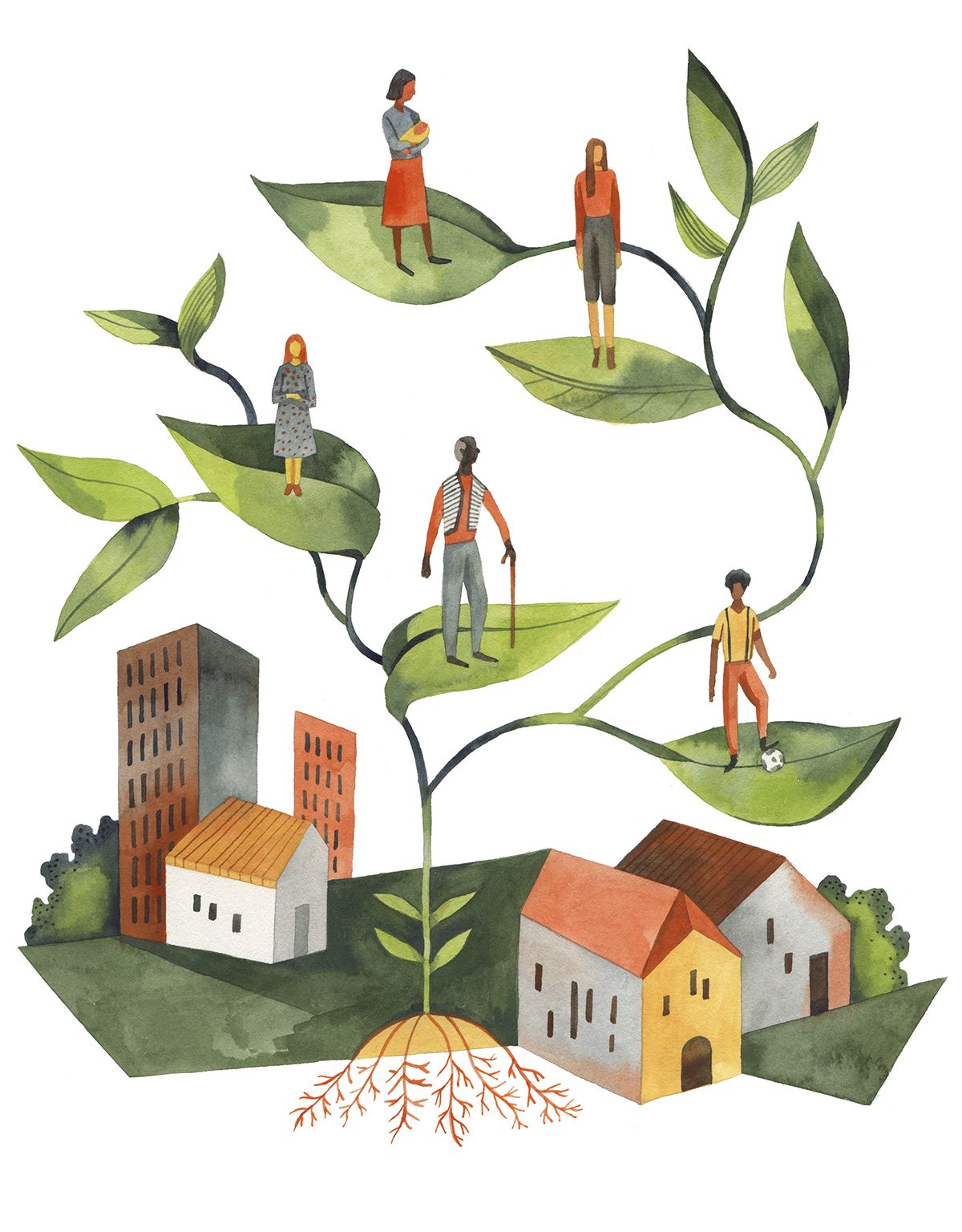For the past five decades I have been helping to build a movement for fundamental economic change. I still believe humanity can make a U-turn away from a high-tech consumer culture, towards Nature, and build communities founded on strong local economies.
Over the years I’ve seen environmental campaigns rise and fall. It’s very hard work being an activist, and many of my friends and colleagues feel depressed and exhausted. But I don’t. I still have real hope for the future.
Certainly the unrelenting, systematic transfer of power into the hands of global corporations has been disheartening, to say the least. The IMF-imposed reforms, the ratifying of ‘free trade’ agreements, the bailing out of big banks, the skyrocketing profits of the world’s billionaires – it all leaves things looking pretty bleak.
But in the cracks of the global system I have seen a quiet revolution emerging. Working across four continents, I have had the rather unique privilege of coming to know countless community groups that, while invisible in the mainstream media, are actively transforming their communities and economies from the ground up. Everywhere I go I have seen a proliferation of small-scale, local and inspiringly beautiful alternatives to the dominant system.
Although these projects – in food, business, medicine, cultural renewal, and more – look radically different from place to place, the common thrust is towards reweaving tangible, accountable relationships of interdependence with community and the Earth. And in a decentralised, almost intuitive manner, people from San Francisco to Seoul, from rural India to the UK, are singing to the same tune. They know that the new world will grow from the bottom up.
In September this year, an outstanding array of these people will make their way to the UK city of Bristol for the Planet Local Summit. This event will be the largest convergence ever of thinkers and activists working to promote economic localisation as the antidote to the dead-end path of corporate-led expansionism. Bringing together Earth-based wisdom with clear political strategies, grassroots examples with the seeds of a new worldview, the summit will be a pivotal moment for those who, like me, still believe in the possibility of real systems change.
‘Real systems change’ can sound vague, Utopian, anachronistic. But, call it what you will, it’s already beginning to happen – sometimes right under our noses. Despite the power and profits of agribusiness giants, localised food systems and vibrant farmers’ markets are multiplying. Independent shops are pushing back against the dominance of chain stores. In urban and rural areas alike, alternative institutions like holistic health centres, community schools and mutual aid networks are proving they can do a better job of meeting people’s needs than big companies and bloated government institutions. And there are countless active attempts at building interdependent, land-based communities. Together these initiatives are renewing a vibrant plurality of place-based cultures, where people help meet each other’s needs and take care of the Earth.
In recent years, particularly post Covid, enthusiasm and support for economic decentralisation have increased exponentially. And that’s despite the fact that localisation represents a 180-degree turn away from the dominant economy, which continues to dole out subsidies and tax breaks to big corporations and implement corporate-friendly regu-lations. The widespread and often unglamorous struggle from the bottom up attests to the goodwill, common sense and powerful perseverance of people worldwide.
The Planet Local Summit will celebrate these remarkable achievements. But it will also raise the call for structural change to support a shift towards the local. We will be presenting a united call – from left and right, old and young, north and south alike – to rein in the unfettered profiteering of global corporations. And we will be giving strength to the fast-growing localisation movement that is demanding strategic policy change for a new economy.
In my view, what has hampered this movement most of all is a lack of awareness. The corporate media and even most of academia have been largely silent on the systematic upward transfer of wealth and power. Instead, our attention has been kept fixed, if not on the vapid distractions of celebrity culture and advertising, then on the ping-pong theatre of politics in the national arena.
I have hope that now, after almost four decades of increasingly impotent national governments, people’s political attentions are beginning to shift in a subtle but seismic way. I can already see it happening. On both the left and the right, a new understanding is beginning to take hold. Increasingly people around the world are coming to realise that big corporations and banks have far too much power over the economy and over our governments. As we have seen, the growing power of the corporations has implications for almost every aspect of our lives: for jobs, for mental health, for the environment, for social justice. Just look at how the global economy responded to the shock of Covid, with an unprecedented upward transfer of wealth: corporate profits soaring while small businesses closed down en masse. And now we have a cost of living crisis, perhaps the final nail in the coffin of the laughable contention that a rising tide lifts all boats.
Meanwhile, a complementary understanding is dawning. Not only is a global economic order responsible for almost everything that’s going wrong, but almost everything that’s going right – everything that’s truly meaningful for the restoration of human and ecological health – is happening locally.
The Planet Local Summit is taking place in Bristol from 29 September to 1 October 2023. For more information visit www.localfutures.org








